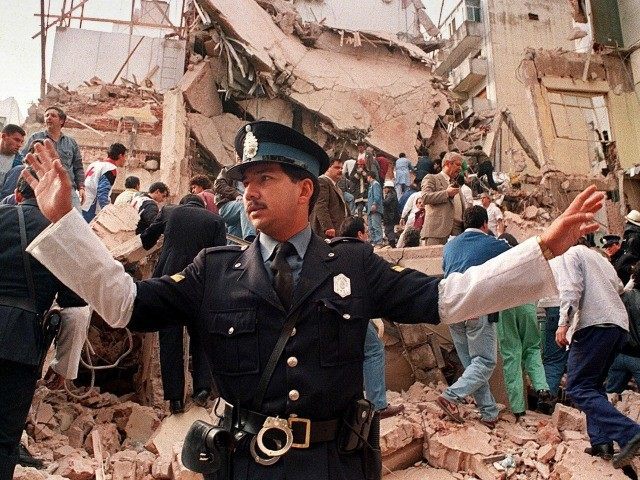Newly-inaugurated Argentine President Mauricio Macri has established a special Bureau for the Investigation of the AMIA bombing to investigate Iranian suspects linked to the 1994 terrorist attack on a Jewish center that left 85 people dead, and the shooting of a prosecutor investigating it more than 20 years later.
Macri, the nation’s first conservative president in 12 years, was elected by a wide margin in November and recently sworn in at a ceremony outgoing president Cristina Fernández de Kirchner refused to attend. Paramount among his campaign promises was to continue an investigation into the 1994 bombing of the Argentine-Israeli Mutual Association, stunted significantly by an agreement the government of Fernández de Kirchner passed alongside Iran. While a number of the suspects law enforcement identified were not only Iranian citizens, but high-ranking Iranian government officials, the Iran agreement allowed these same officials authority over the investigation.
The AMIA bombing was the deadliest terrorist attack on the Western hemisphere before the attacks on September 11, 2001. No arrests have been made in the case, though Argentine prosecutor Alberto Nisman had previously secured Interpol “red alerts” for six Iranian nationals in relation to the bombing.
Nisman was found dead of a gunshot wound to the head on January 18, 2015 in his home. He was to testify before the Congress on January 19 that Fernández de Kirchner and other high-ranking Argentine officials had agreed to work to remove the red alerts in exchange for competitive prices on Iranian oil.
Macri’s first step in office has been to invalidate the agreement. Technically, this required the Argentine government to withdraw an appeal before the Argentine courts after the agreement was found unconstitutional. The agreement was only valid because the case was stuck in courts. Macri’s withdrawal renders the agreement void, and effectively expels Iran from the investigation. “The withdrawal of the appeal allows for sealed files to be re-examined, including some related to the bombing of the Jewish AMIA (Argentine Israelite Mutual Association) building,” the UK Independent reports, adding that Macri’s move has received praise from Israeli Prime Minister Benjamin Netanyahu.
Following the dissolution of this agreement – freeing Argentina’s law enforcement to fully investigate the matter without Iranian intervention – Macri announced the establishment of a special government agency to investigate both the AMIA bombing and the death of Alberto Nisman, the Bureau of Investigation for the AMIA Attack. He has appointed ex-senator Mario Cimadevilla as its head, and given it the authority of a cabinet office. Its first task, report Argentine media, is to prepare a trial in absentia for those accused of plotting the bombings. “The in absentia trial for crimes against humanity can be done so that we have convictions and the victims receive justice,” Cimadevilla told reporters. “This way, we can try eight Iranians indicted that never came to Argentina to declare themselves. We also have to investigate local ties.”
“This in no way substitutes the investigation already underwaty,” he clarified. He has called for reopening the case that Nisman had been working on against Fernández de Kirchner before his death.
As Nisman was the head prosecutor in charge of the AMIA investigation, the probe into the bombing had been de facto concluded upon his death.
“It is very important to continue with the charges that the prosecutor has leveled, that they be investigated, that we know what will happen with the prosecutor’s equipment and with his proof,” Macri said as a presidential candidate earlier this year. “If this death results in more impunity, it will be a disaster for the institutional future of our nation.”

COMMENTS
Please let us know if you're having issues with commenting.